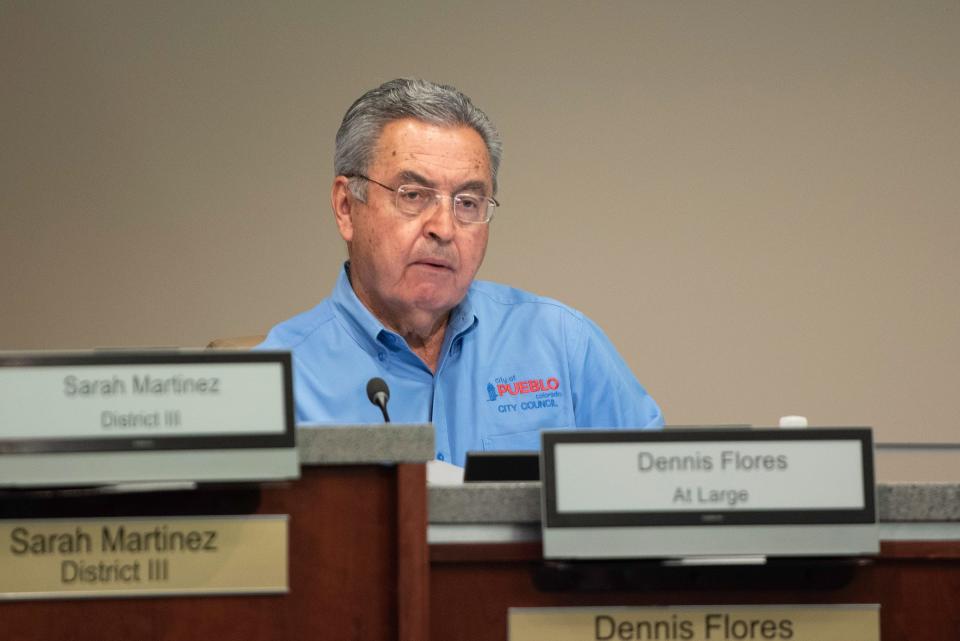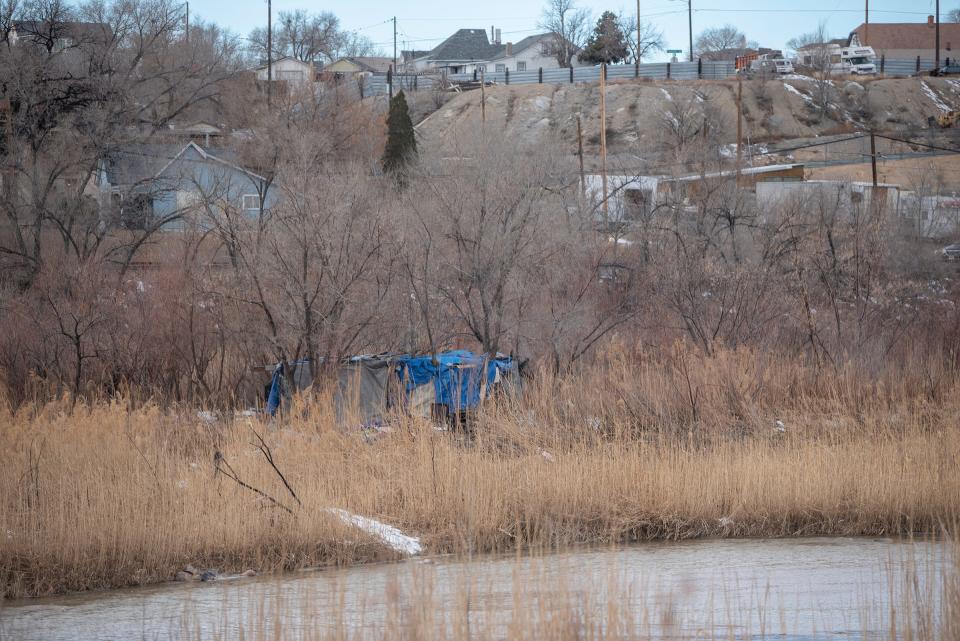Pueblo bans camping on public property; violators face fines up to $1,000
Pueblo City Council approved an ordinance Monday that makes it illegal to camp on public property within city limits.
The ordinance was introduced last month and stipulates that a person can’t camp on “city property,” meaning any park, roadway, recreation area, open space, or any other land owned by the city. If a person does so, they will be given the option to move into a sheltered space or face a potential fine of up to $1,000 if they refuse.
The city defines camping as temporarily residing or dwelling with shelter in an area where a person conducts daily activities such as sleeping or eating. The city's definition of shelter is any structure used, other than clothing, to protect oneself from the elements of the weather.
Notably, the ordinance states that a person can’t be in violation of it if they can’t access other shelter options. The Pueblo Police Department must demonstrate that there are other alternatives available before an officer can cite someone for breaking the law, said Carla Sikes, interim city attorney for the city of Pueblo.
Similar ordinances have passed in Denver and other Colorado cities, which have sought to crack down on homeless encampments, particularly in public areas. In Pueblo, most encampments aren't visible near businesses or sidewalks but are mostly located along the Fountain Creek area.
The ordinance, brought forth by councilor Regina Maestri, passed by a 4-2 vote. It is different from another Pueblo law that prohibits people from pitching a tent or structure in a park.
How city councilors voted on the camping ban
Dennis Flores and Sarah Martinez voted against the ordinance, while Maestri, Mark Aliff, Joe Latino, and Roger Gomez supported it.

Flores said he was certain the ordinance would not prove effective, citing data that show homelessness didn’t decrease in areas where a similar law was adopted. He questioned whether the Pueblo Rescue Mission, the city’s only homeless shelter, would have the capacity to take an influx of residents who are told to pick up their belongings and go there.
“It’s very evident that this doesn’t accomplish anything,” Flores said.
Martinez echoed some homeless advocates’ concerns about the potential fine, arguing that it “perpetuates” homelessness.
She noted the mission helps some clients who seek its services but doesn’t have certain resources that some people need, such as housing for pets, or an ability to take in couples. The mission separates its male and female clients.

Maestri last month said she feels public camping can negatively affect Pueblo’s environment. She noted that again on Monday and cited the significant cleanup that Pueblo’s Team Up to Clean Up program did last year.
“I’m going to still stick with what I was elected to do and that’s to protect the public lands in this community,” Maestri said.
Aliff said he didn’t want the public to view his vote as an indictment of the unhoused but rather a sentiment of compassion because he cares about them enough to not “let them lay out in the wilderness like a bunch of wild animals.”
He added that he wants to help the homeless and suggested Pueblo could build another shelter if the mission doesn’t have enough room.
“If you think it’s compassionate to allow them to live out there like that willy-nilly, that’s crazy in my opinion,” Aliff said. “My goal is to help people get out of the jungle, or wherever it is. It’s to help, not to hinder.”

'A way to kick people while they're down': Citizens react to the ordinance
Camping bans are often panned by homeless advocates, some of whom argue they don’t address homelessness and make outreach and engagement with the unhoused more difficult.
More people spoke against the ordinance than for it on Monday, suggesting that city leaders instead focus on housing and other resources that could alleviate homelessness.
“This camping ban really is just a criminalization against poverty,” said Jamie Valdez, a Pueblo native and environmentalist who pushed back against Maestri’s insinuation that Fountain Creek is significantly polluted by Pueblo’s unhoused. “What a way to kick people while they’re down.”
A few spoke in favor of the ordinance, echoing Maestri and Aliff’s concerns while claiming that the environmental impacts of the unhoused could be detrimental to Pueblo in the short and long term.
How will the ordinance be enforced?
The ordinance does not specify how it will be enforced other than to state that Pueblo PD will assume that responsibility. The Chieftain sought comment from Pueblo Police Chief Chris Noeller but did not receive a response prior to Tuesday's print deadline.
If Pueblo PD personnel encounter someone who is violating the ordinance, they may request to see if the person has written permission to shelter in a certain location. If the request is not fulfilled, officers can interpret it as an admission that the person did not seek permission to camp in that area.
More Pueblo news: Pueblo weighing options as Denver migrant crisis spills over to southern Colorado
Chieftain reporter Josué Perez can be reached at JHPerez@gannett.com. Follow him on X, formerly Twitter, at @josuepwrites. Support local news, subscribe to The Pueblo Chieftain at subscribe.chieftain.com.
This article originally appeared on The Pueblo Chieftain: Pueblo bans camping on public property to crack down on homelessness

